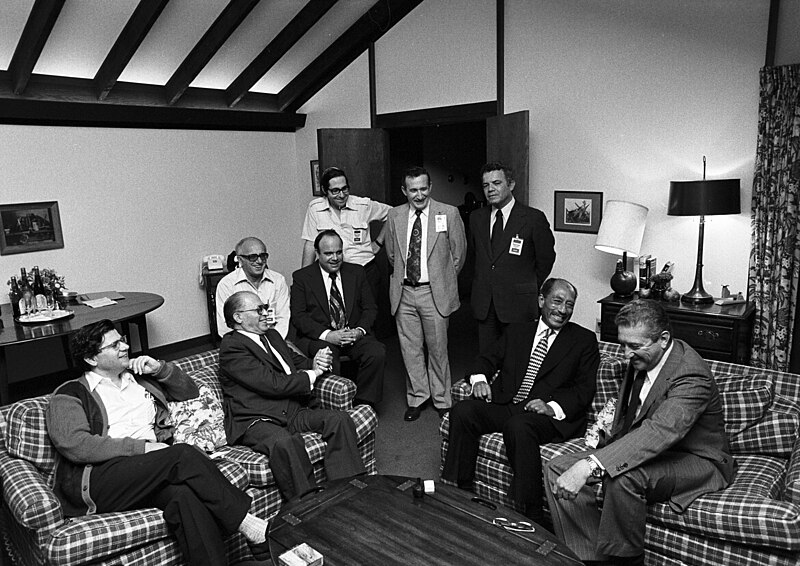On March 26, 1979, history was forever altered when Israel and Egypt signed a peace treaty in Washington, D.C., formally ending decades of hostility between the two nations. This monumental agreement, a turning point in Middle Eastern history, resulted from intense diplomacy following the Camp David Accords of 1978, brokered by U.S. President Jimmy Carter.
For over 30 years, Egypt and Israel had been bitter enemies. Their conflict reached its peak during the Six-Day War of 1967, when Israel seized the Sinai Peninsula, a strategic territory belonging to Egypt. Attempts at diplomacy failed, leading to another war—the Yom Kippur War of 1973, which involved Syria and Egypt launching a surprise attack on Israel.
Recognizing the need for a lasting peace, Egyptian President Anwar Sadat and Israeli Prime Minister Menachem Begin began negotiations with the crucial mediation of U.S. President Jimmy Carter. After 12 days of intense secret talks at Camp David, Maryland, the leaders signed two agreements on September 17, 1978:
- A Framework for Peace in the Middle East, which addressed Palestinian autonomy.
- A Framework for the Conclusion of a Peace Treaty between Egypt and Israel led to the treaty on March 26, 1979.
The 1979 Peace Treaty
The Egypt-Israel Peace Treaty outlined several key agreements:
- Mutual Recognition: Egypt became the first Arab country to recognize Israel officially.
- Israeli Withdrawal: Israel agreed to return the Sinai Peninsula to Egypt within three years.
- End of Hostilities: Both nations pledged to never go to war again.
- Freedom of Navigation: Israel gained access to vital waterways, including the Suez Canal.
Reaction and Consequences
The treaty was groundbreaking but also highly controversial. Many Arab nations condemned Egypt, viewing the agreement as a betrayal of Palestinian interests. This condemnation led to Egypt’s suspension from the Arab League from 1979 to 1989, a significant consequence of the treaty’s signing. Tragically, Anwar Sadat was assassinated in 1981 by extremists who opposed the peace deal.
Despite initial tensions, the treaty stands strong today, a testament to the enduring power of diplomacy. It remains one of modern history’s most enduring peace agreements, laying the groundwork for future negotiations, including the Oslo Accords (1993) and the Israel-Jordan Peace Treaty (1994).

